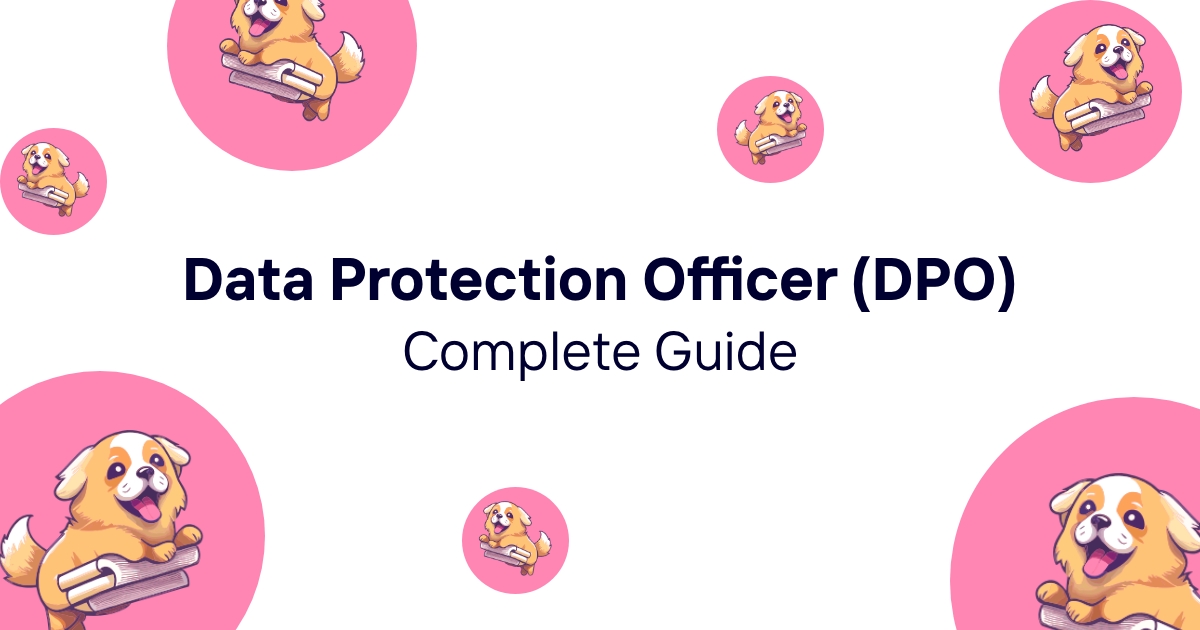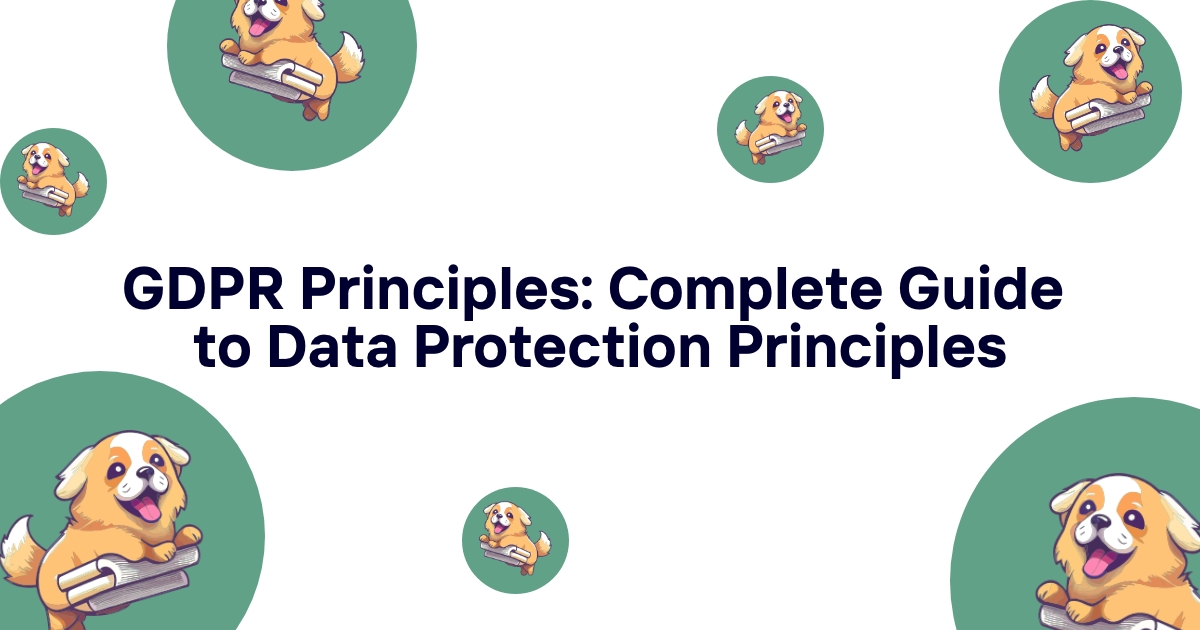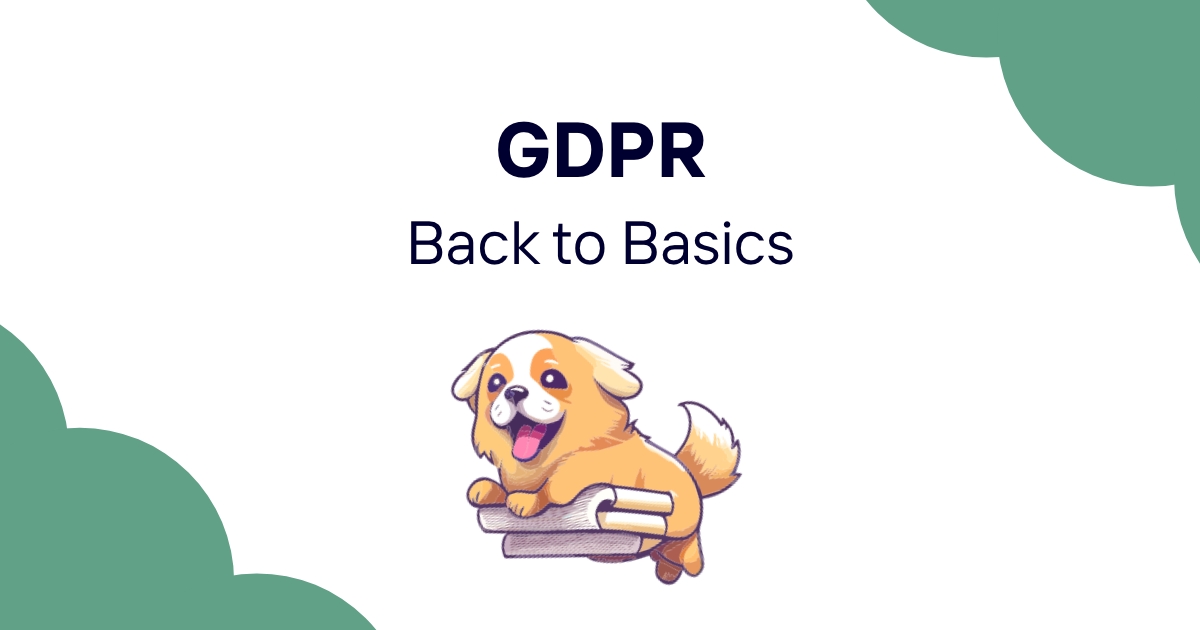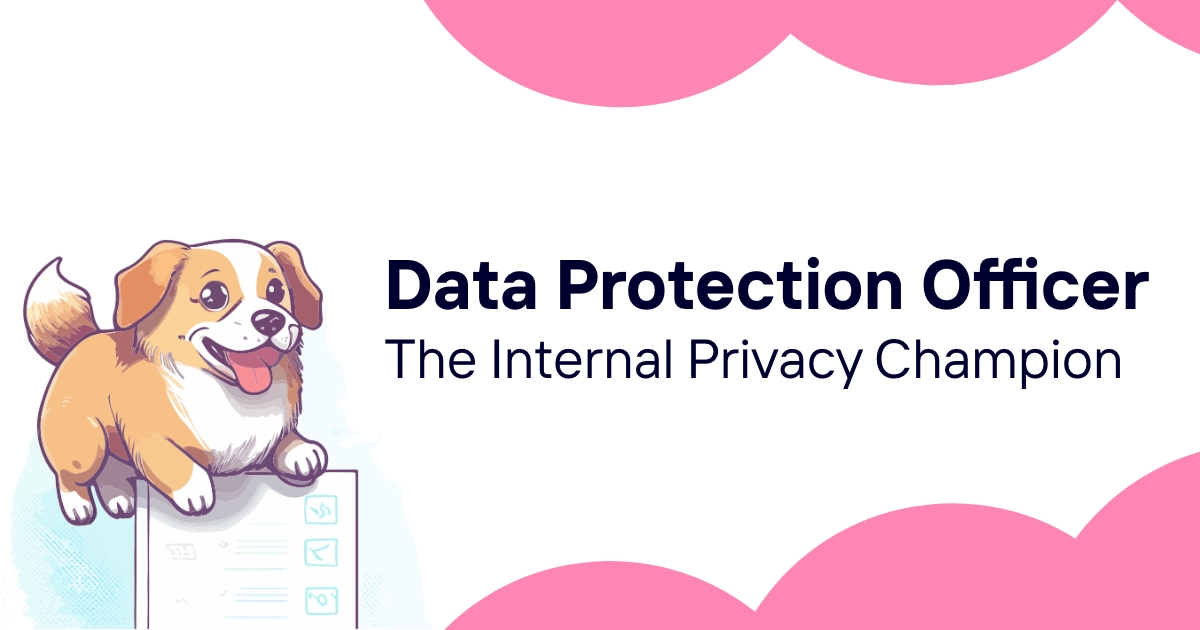The Data Protection Officer (DPO) represents one of GDPR's most significant innovations, creating a new professional role dedicated to privacy protection and regulatory compliance. Understanding DPO requirements, responsibilities, and implementation strategies is essential for organizations determining whether they need a DPO and how to establish effective privacy governance.
This comprehensive guide covers all aspects of the DPO role including legal requirements, qualification standards, responsibilities, and practical implementation considerations. Whether evaluating DPO necessity or establishing DPO functions, this guide provides essential information for effective privacy program management.
What is a Data Protection Officer (DPO)?
A Data Protection Officer (DPO) is a privacy professional appointed under GDPR Article 37 to oversee an organization's data protection strategy and implementation to ensure compliance with applicable privacy regulations.
DPO Role Definition and Purpose
The DPO serves as the organization's privacy expert and regulatory liaison with specific functions:
Privacy Expertise: DPOs provide specialized knowledge about data protection law, regulations, and best practices to guide organizational compliance efforts.
Compliance Oversight: DPOs monitor organizational compliance with GDPR and other privacy regulations, identifying issues and recommending improvements.
Regulatory Interface: DPOs serve as primary contacts for data protection authorities and facilitate regulatory communications and examinations.
Internal Advisory: DPOs advise management and staff about privacy obligations, risks, and appropriate data handling practices.
Independence Function: DPOs operate with independence from business operations to provide objective privacy guidance and oversight.
DPO Legal Foundation
GDPR establishes the DPO role with specific legal requirements and protections:
Mandatory Appointment: Certain organizations must appoint DPOs based on their sector, processing activities, or risk profile.
Independence Requirements: DPOs must operate with sufficient independence to perform their functions effectively without conflicts of interest.
Protection from Dismissal: DPOs receive legal protection from dismissal or penalization for performing their duties.
Resource Entitlement: Organizations must provide DPOs with adequate resources to perform their functions effectively.
Authority Requirements: DPOs must have appropriate authority and access to carry out their responsibilities.
DPO vs Other Privacy Roles
Understanding how DPOs differ from other privacy professionals helps clarify role boundaries and responsibilities:
Privacy Manager vs DPO: Privacy managers typically focus on operational implementation while DPOs provide strategic oversight and regulatory interface.
Compliance Officer vs DPO: General compliance officers address multiple regulatory areas while DPOs specialize specifically in data protection.
Legal Counsel vs DPO: Legal counsel provides general legal advice while DPOs offer specialized privacy expertise and ongoing oversight.
Chief Privacy Officer vs DPO: CPOs typically represent senior executive roles while DPOs may operate at various organizational levels with specific GDPR-defined functions.
DPO Evolution and Trends
The DPO role continues evolving as privacy regulations expand and organizational needs change:
Regulatory Expansion: New privacy laws in various jurisdictions create demand for DPO-like roles beyond EU operations.
Professional Development: Specialized training, certification, and professional development programs for DPO roles.
Technology Integration: Increasing use of privacy technology tools and automation to support DPO functions.
Cross-Functional Integration: Greater integration of DPO roles with other business functions including security, compliance, and risk management.
Strategic Elevation: Evolution of DPO roles from compliance monitoring to strategic privacy leadership and business enablement.
When is a DPO Required Under GDPR?
GDPR Article 37 establishes specific criteria that trigger mandatory DPO appointment, though organizations may voluntarily appoint DPOs even when not required.
Mandatory DPO Appointment Criteria
Three specific circumstances require mandatory DPO appointment under GDPR:
Public Authority Processing: Public authorities and bodies must appoint DPOs regardless of their processing activities, with limited exceptions for courts acting in judicial capacity.
Large-Scale Systematic Monitoring: Organizations whose core activities involve large-scale systematic monitoring of individuals must appoint DPOs.
Large-Scale Special Category Processing: Organizations whose core activities involve large-scale processing of special categories of personal data or criminal conviction data must appoint DPOs.
Core Activities Definition: Processing activities that are central to the organization's business model or primary operations rather than ancillary support functions.
Large-Scale Processing: While GDPR doesn't define "large-scale" precisely, guidance suggests considering factors like data volume, geographic scope, duration, and number of individuals affected.
Public Authority Requirements
Public sector organizations face broad DPO appointment obligations with specific considerations:
Scope of Public Bodies: Including government agencies, municipalities, public healthcare providers, and educational institutions.
Judicial Exception: Courts acting in judicial capacity are exempt from DPO appointment requirements.
Public-Private Partnerships: Joint ventures between public and private entities may require careful analysis of DPO obligations.
Subsidiary Organizations: Public authority subsidiaries and related entities may have DPO requirements depending on their independence and activities.
Cross-Border Coordination: Public authorities operating across multiple jurisdictions may need coordinated DPO approaches.
Systematic Monitoring Assessment
Determining whether activities constitute "large-scale systematic monitoring" requires careful analysis:
Monitoring Definition: Systematic observation, tracking, or surveillance of individuals' behavior, activities, or data.
Scale Factors: Considering number of individuals monitored, geographic scope, frequency, and duration of monitoring activities.
Technology Considerations: Online tracking, behavioral analytics, location monitoring, and automated profiling activities.
Business Model Integration: Whether monitoring activities are central to business operations or revenue generation.
Risk Assessment: Evaluating privacy risks and individual impact from systematic monitoring activities.
Special Category Data Processing
Large-scale processing of sensitive personal data triggers DPO requirements with specific considerations:
Special Category Definition: Health data, racial information, political opinions, religious beliefs, trade union membership, genetic data, biometric data, and sexual orientation data.
Processing Scale: Assessing whether special category processing meets "large-scale" thresholds considering volume, scope, and impact.
Core Activity Integration: Whether special category processing is central to organizational operations or ancillary to primary business functions.
Criminal Conviction Data: Processing of criminal conviction and offense data under similar large-scale requirements.
Combined Processing: Organizations processing multiple types of special category data may more easily meet large-scale thresholds.
DPO Qualifications and Skills Requirements
GDPR establishes general qualification requirements for DPOs while allowing flexibility in specific credentials and experience based on organizational needs and processing complexity.
Professional Qualifications
DPOs must possess appropriate professional qualifications commensurate with their responsibilities:
Expert Knowledge: Deep understanding of data protection law and practices proportional to the data processing complexity.
Legal Background: Strong foundation in privacy law, regulation, and legal principles affecting data processing activities.
Technical Understanding: Sufficient technical knowledge to understand data processing operations, security measures, and privacy technologies.
Practical Experience: Relevant experience in privacy, compliance, or related fields that demonstrates capability to perform DPO functions.
Continuous Education: Commitment to ongoing professional development and staying current with regulatory developments.
Core Competency Areas
Effective DPOs need competencies across multiple domains:
Regulatory Knowledge: Comprehensive understanding of GDPR, ePrivacy Directive, and other applicable privacy regulations.
Business Acumen: Understanding of business operations, processes, and objectives to provide practical privacy guidance.
Risk Assessment: Ability to identify, assess, and communicate privacy risks and their business implications.
Communication Skills: Strong written and verbal communication capabilities for diverse audiences including executives, technical staff, and regulators.
Project Management: Capability to manage privacy initiatives, audits, and compliance projects effectively.
Technical Competencies
Modern DPO roles require understanding of technology and its privacy implications:
Data Architecture: Understanding of how data flows through organizational systems and technology infrastructure.
Security Principles: Knowledge of information security principles and how they relate to privacy protection.
Privacy Technologies: Familiarity with privacy-enhancing technologies including encryption, anonymization, and privacy by design approaches.
System Integration: Understanding of how different systems integrate and share personal data.
Emerging Technologies: Awareness of privacy implications of artificial intelligence, machine learning, IoT, and other emerging technologies.
Professional Development and Certification
Various programs support DPO professional development:
Certification Programs: Professional certifications from organizations like IAPP, ISACA, and other privacy professional bodies.
Continuing Education: Ongoing training programs, conferences, and educational opportunities to maintain current knowledge.
Professional Networks: Participation in DPO networks, professional associations, and peer learning communities.
Legal Updates: Systematic tracking of regulatory developments, enforcement actions, and legal guidance.
Industry Specialization: Development of expertise in specific industries or sectors with unique privacy requirements.
As discussed in our cookie consent banner guide, DPOs often oversee implementation of specific privacy controls including consent management and cookie compliance.
DPO Roles and Responsibilities
GDPR Article 39 outlines specific DPO tasks while allowing organizations flexibility in how DPOs fulfill these responsibilities within their operational contexts.
Core GDPR-Mandated Tasks
DPOs have specific responsibilities that organizations must enable and support:
Information and Advice: Providing privacy guidance to the organization and employees about GDPR obligations and data protection requirements.
Compliance Monitoring: Monitoring organizational compliance with GDPR and other privacy regulations including assignment of responsibilities and staff training.
Data Protection Impact Assessments: Providing advice on Data Protection Impact Assessments and monitoring their performance.
Supervisory Authority Cooperation: Serving as contact point for supervisory authorities and cooperating with them on all data protection matters.
Risk Awareness: Advising on privacy risks associated with processing operations taking into account the nature, scope, context, and purposes of processing.
Strategic Privacy Leadership
Effective DPOs often expand beyond minimum requirements to provide strategic value:
Privacy Strategy Development: Contributing to organizational privacy strategy and ensuring alignment with business objectives.
Policy Development: Leading development and maintenance of privacy policies, procedures, and governance frameworks.
Training and Awareness: Developing and delivering privacy training programs for different organizational roles and responsibilities.
Vendor Management: Providing privacy oversight for vendor relationships and third-party processing arrangements.
Incident Response: Leading privacy incident response and breach notification procedures.
Operational Implementation
DPOs translate regulatory requirements into practical operational guidance:
Process Design: Advising on privacy-compliant process design for business operations and system implementations.
Rights Request Management: Overseeing procedures for handling individual rights requests and ensuring compliant responses.
Consent Management: Providing guidance on consent collection, management, and withdrawal procedures.
International Transfers: Advising on appropriate safeguards and legal mechanisms for international data transfers.
Documentation Requirements: Ensuring appropriate documentation of processing activities and compliance measures.
Stakeholder Engagement
DPOs engage with various internal and external stakeholders:
Executive Leadership: Providing privacy briefings and guidance to senior management and board members.
Business Units: Working with different departments to implement privacy requirements within their specific operations.
IT and Security: Collaborating with technical teams on privacy by design and security measure implementation.
Legal Counsel: Coordinating with legal teams on privacy legal issues and regulatory compliance.
External Partners: Managing privacy aspects of partnerships, vendor relationships, and business collaborations.
Performance Measurement
Effective DPOs establish metrics and measurement approaches for their activities:
Compliance Metrics: Tracking compliance performance across different organizational areas and requirements.
Training Effectiveness: Measuring privacy training participation and knowledge retention across the organization.
Incident Response: Monitoring privacy incident frequency, response times, and resolution effectiveness.
Risk Reduction: Assessing privacy risk reduction and mitigation effectiveness over time.
Stakeholder Satisfaction: Evaluating stakeholder satisfaction with DPO services and support.
DPO Independence and Authority
GDPR requires DPOs to operate with sufficient independence and authority to perform their functions effectively without conflicts of interest or inappropriate influence.
Independence Requirements
DPO independence encompasses several specific elements:
Reporting Structure: DPOs should report to the highest management level to ensure independence from operational pressures and conflicts.
Dual Role Restrictions: DPOs cannot simultaneously hold positions that create conflicts of interest with privacy oversight responsibilities.
Decision-Making Authority: DPOs must have authority to make privacy-related decisions within their scope of responsibility.
Budget and Resources: Access to adequate budget and resources to perform DPO functions without dependency on business units they oversee.
External Communication: Freedom to communicate directly with supervisory authorities without prior approval from management.
Conflict of Interest Prevention
Organizations must carefully structure DPO roles to avoid conflicts of interest:
Incompatible Positions: DPOs cannot simultaneously serve as CEO, COO, CFO, CTO, marketing director, or other senior positions that determine processing purposes and means.
Business Unit Leadership: DPOs should not lead business units whose processing activities they oversee.
Vendor Relationships: DPOs should not have personal or financial relationships with vendors they evaluate for privacy compliance.
Performance Incentives: DPO compensation and performance evaluation should not create incentives that conflict with privacy oversight responsibilities.
Decision Review: Systems should prevent DPOs from reviewing or approving their own privacy-related decisions.
Authority and Access Rights
DPOs need appropriate authority and access to perform their functions effectively:
Information Access: Unrestricted access to personal data processing operations, systems, and documentation relevant to their oversight responsibilities.
System Access: Appropriate access to systems and platforms necessary for compliance monitoring and assessment.
Meeting Participation: Rights to participate in relevant meetings and decision-making processes that affect privacy compliance.
Investigation Authority: Authority to investigate privacy concerns and potential compliance issues.
Recommendation Implementation: Reasonable expectation that privacy recommendations receive appropriate consideration and implementation.
Protection from Retaliation
GDPR provides specific protections for DPOs against retaliation for performing their duties:
Dismissal Protection: DPOs cannot be dismissed for performing their DPO functions appropriately.
Penalty Protection: Protection from penalties, discipline, or negative performance evaluation based on privacy oversight activities.
Career Impact: Protection from career advancement limitations or professional retaliation for privacy-related decisions.
Legal Support: Access to legal support when facing challenges related to DPO function performance.
Whistleblower Protection: Protection when reporting serious privacy violations or compliance failures to appropriate authorities.
Organizational Support Requirements
Organizations must provide appropriate support to enable effective DPO performance:
Resource Allocation: Adequate budget, staff, and technological resources for DPO function performance.
Professional Development: Support for ongoing training, certification, and professional development activities.
Administrative Support: Appropriate administrative and operational support to enable focus on privacy oversight activities.
Technology Access: Access to privacy management tools, legal databases, and other resources necessary for effective oversight.
Communication Channels: Established communication channels and protocols for DPO interaction with different organizational levels.
Internal vs External DPO Options
Organizations can choose between appointing internal employees as DPOs or contracting with external DPO service providers, each approach offering distinct advantages and considerations.
Internal DPO Advantages
Appointing internal employees as DPOs provides several organizational benefits:
Organizational Knowledge: Internal DPOs understand business operations, culture, and specific privacy challenges more deeply than external providers.
Continuous Availability: Full-time availability for privacy guidance, incident response, and ongoing compliance support.
Stakeholder Relationships: Established relationships with internal stakeholders facilitate collaboration and implementation of privacy initiatives.
Cultural Integration: Better integration with organizational culture and ability to influence privacy awareness and practices.
Long-Term Commitment: Sustained commitment to organizational privacy improvement and compliance excellence.
External DPO Benefits
External DPO services offer different advantages that may suit certain organizational needs:
Specialized Expertise: Access to highly specialized privacy expertise that may be difficult to develop or retain internally.
Cost Efficiency: Potentially lower costs than full-time internal positions, particularly for smaller organizations.
Independence Perspective: External perspective that may identify issues or opportunities that internal staff might miss.
Regulatory Relationships: Established relationships with supervisory authorities and experience with regulatory examinations.
Scalability: Ability to scale DPO services up or down based on organizational needs and compliance requirements.
Hybrid Approaches
Some organizations successfully combine internal and external DPO resources:
Lead DPO with Support: Internal lead DPO supported by external specialized consultants for specific expertise areas.
Shared Services: External DPO services shared across multiple related organizations or business units.
Transition Planning: External DPO services during transition periods while developing internal capabilities.
Specialized Projects: External expertise for specific projects like system implementations or regulatory examinations.
Backup Coverage: External backup DPO services for coverage during absence or high-demand periods.
Selection Criteria
Choosing between internal and external DPO approaches requires careful consideration:
Organizational Size: Larger organizations often benefit from internal DPOs while smaller organizations may prefer external services.
Processing Complexity: Complex processing operations may require dedicated internal attention while simpler operations may suit external services.
Budget Considerations: Total cost analysis including salary, benefits, training, and support costs for internal DPOs versus external service fees.
Regulatory Risk: Higher-risk processing activities may require dedicated internal attention while lower-risk operations may suit external oversight.
Growth Trajectory: Rapidly growing organizations may benefit from flexible external services while stable organizations may prefer internal continuity.
DPO Appointment Process
Appointing a DPO requires systematic planning, clear communication, and proper registration with supervisory authorities to ensure compliance and effectiveness.
Appointment Planning and Preparation
Effective DPO appointment requires careful planning and organizational preparation:
Needs Assessment: Comprehensive analysis of organizational privacy needs, processing activities, and DPO function requirements.
Role Definition: Clear definition of DPO responsibilities, authority, reporting structure, and performance expectations.
Resource Planning: Allocation of appropriate budget, staff support, and technological resources for DPO function success.
Stakeholder Communication: Clear communication to all stakeholders about DPO appointment, role, and interaction procedures.
Timeline Development: Realistic timeline for DPO selection, appointment, and transition to full effectiveness.
Selection Process
Systematic DPO selection ensures appointment of qualified candidates who can perform effectively:
Qualification Assessment: Evaluation of candidates against GDPR requirements and organizational-specific needs.
Experience Verification: Thorough review of relevant privacy, compliance, and regulatory experience.
Competency Testing: Assessment of privacy knowledge, technical understanding, and communication capabilities.
Cultural Fit: Evaluation of alignment with organizational culture and ability to work effectively with various stakeholders.
Reference Checking: Verification of past performance and capability through professional references.
Legal and Administrative Requirements
DPO appointment involves specific legal and administrative steps:
Formal Appointment: Official appointment documentation that establishes DPO authority and responsibilities.
Contact Publication: Publication of DPO contact details and making them easily accessible to individuals and supervisory authorities.
Authority Registration: Registration with relevant supervisory authorities as required by local implementation of GDPR.
Internal Notification: Clear internal communication about DPO appointment and interaction procedures.
Documentation Maintenance: Comprehensive documentation of appointment process and DPO qualifications for compliance verification.
Transition and Integration
Successful DPO integration requires systematic transition planning:
Orientation Program: Comprehensive orientation covering organizational structure, processes, systems, and privacy challenges.
Stakeholder Introductions: Structured introductions to key stakeholders across legal, IT, business, and executive functions.
System Access: Provision of appropriate system access, tools, and resources necessary for DPO function performance.
Initial Assessment: Comprehensive assessment of current privacy compliance status and priority improvement areas.
Quick Wins: Identification and implementation of quick privacy improvements that demonstrate DPO value and build stakeholder confidence.
Change Management
DPO appointment often requires organizational change management:
Communication Strategy: Clear communication about DPO role, authority, and interaction expectations throughout the organization.
Training Programs: Staff training about privacy obligations and procedures for working with DPO functions.
Process Integration: Integration of DPO review and approval into relevant business processes and decision-making procedures.
Culture Development: Development of privacy-conscious organizational culture that supports and values DPO contributions.
Performance Monitoring: Ongoing monitoring of DPO effectiveness and organizational adaptation to new privacy governance structures.
DPO Performance and Evaluation
Effective DPO performance management requires balanced approaches that support independence while ensuring accountability and continuous improvement.
Performance Measurement Framework
DPO performance evaluation must respect independence while ensuring effectiveness:
Compliance Metrics: Objective measures of organizational compliance improvement and regulatory requirement fulfillment.
Process Effectiveness: Assessment of privacy process development, implementation, and ongoing effectiveness.
Stakeholder Satisfaction: Feedback from internal stakeholders about DPO support, guidance, and collaboration effectiveness.
Professional Development: Evaluation of ongoing learning, skill development, and expertise enhancement.
Strategic Contribution: Assessment of DPO contribution to organizational strategy and business objective achievement.
Evaluation Methodology
Systematic evaluation approaches ensure fair and comprehensive assessment:
360-Degree Feedback: Input from various stakeholders including executives, business units, IT teams, and external partners.
Objective Metrics: Quantifiable measures including compliance scores, training completion rates, and incident response times.
Qualitative Assessment: Evaluation of communication effectiveness, strategic thinking, and problem-solving capabilities.
Self-Assessment: DPO self-evaluation of performance, challenges, and professional development needs.
External Benchmarking: Comparison with industry standards and best practices for DPO performance.
Professional Development Planning
Ongoing development ensures DPO effectiveness in evolving regulatory and business environments:
Training Programs: Participation in privacy training, conferences, and professional development opportunities.
Certification Maintenance: Ongoing certification and credential maintenance through continuing education and examination.
Knowledge Updates: Systematic tracking of regulatory developments, enforcement actions, and industry best practices.
Peer Networks: Participation in DPO professional networks and learning communities.
Specialized Expertise: Development of specialized knowledge in emerging privacy areas like AI, IoT, or specific industry requirements.
Support and Resource Evaluation
Regular assessment ensures DPOs have adequate support for effective performance:
Resource Adequacy: Evaluation of whether budget, staff, and technological resources meet DPO function needs.
Authority Effectiveness: Assessment of whether DPO authority enables effective privacy oversight and guidance.
Organizational Support: Evaluation of stakeholder cooperation and organizational commitment to privacy improvement.
Independence Maintenance: Ongoing verification that independence requirements are maintained and respected.
Improvement Opportunities: Identification of opportunities to enhance DPO effectiveness through additional support or resources.
Long-Term Success Factors
Sustainable DPO success requires attention to long-term effectiveness factors:
Career Development: Providing career advancement opportunities that maintain DPO motivation and expertise.
Succession Planning: Planning for DPO succession to ensure continuity of privacy oversight and expertise.
Role Evolution: Adapting DPO roles to address changing regulatory requirements and organizational needs.
Value Demonstration: Ongoing demonstration of DPO value through compliance improvement and risk reduction.
Strategic Integration: Integration of DPO functions with broader organizational strategy and governance structures.
Building effective DPO functions requires balancing independence with accountability while providing appropriate support for success. The most effective DPO implementations treat the role as a strategic asset that enables business growth through excellent privacy protection rather than a compliance burden.
For organizations establishing DPO functions or enhancing privacy governance, comprehensive approaches that integrate DPO oversight with systematic privacy management often provide better results than treating DPO appointment as an isolated compliance requirement.
Ready to establish effective privacy governance that supports DPO functions and comprehensive compliance management? Use ComplyDog and get integrated privacy management tools that support DPO oversight responsibilities while providing systematic compliance management, automated rights processing, and comprehensive privacy program coordination that enables effective privacy governance and regulatory compliance.


















